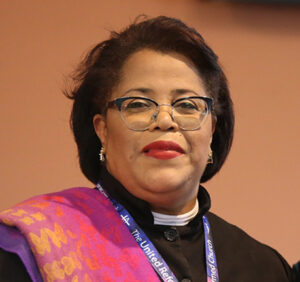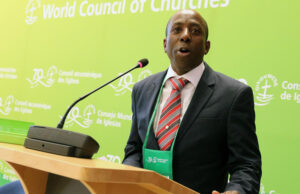In a solemn gesture of ack nowledgment and repentance, the United Reformed Church in the United Kingdom tendered an apology to Jamaica, the Caribbean, and Africa for its involvement in the transatlantic slave trade, a crime against humanity of unparalleled proportions.

The apology, delivered during an ecumenical service themed “Reparation, A Journey Towards Repentance, Repair, and Reconciliation” at Webster Memorial Church in St Andrew, saw the UK church group expressing remorse for the profound legacy of slavery. This legacy, characterized by relentless toil, violence, and dehumanization, continues to afflict societies and lives across the globe.
Reverend Tessa Robinson, moderator of The United Reformed Church UK, conveyed the apology, which was accepted by Reverend Gary Harriott, moderator of The United Church in Jamaica and the Cayman Islands. Robinson underscored the apology’s foundation in the gospel’s call to repentance and reconciliation, acknowledging the pain endured by those affected by the enduring scars of slavery and racism.
The United Reformed Church’s confession encompassed the financial gains accrued from slavery, with acknowledgment of its complicity and benefit from this dark chapter of history. The apology recognized the failure to dismantle the legacies of slavery and pledged to transcend mere words of contrition into tangible actions for justice.

Reverend Harriott, upon accepting the apology, emphasized the ongoing impact of slavery’s barbarity on descendants of the enslaved, shaping societal structures and economic realities. He lauded the apology as a sign of hope and resurrection, urging collective courage in the pursuit of justice and peace.
Harriott reaffirmed The United Church in Jamaica and the Cayman Islands’ commitment to allocating land to the most vulnerable, addressing the historical injustice of landlessness perpetuated by slavery’s legacy. He called upon fellow believers and regional governments to engage in reparative efforts.
This apology echoes similar gestures of contrition within the Anglican communion, including the Church of England’s acknowledgment of its historical ties to slavery. The Church of England’s commitment to reparative justice, underscored by a significant financial investment, reflects a growing recognition of the debt owed to descendants of the enslaved.
As discussions on reparations gain momentum, experts highlight the immense debt owed by former colonial powers to affected communities. Reports underscore the urgency of addressing historical injustices, with calls for substantial reparations to rectify centuries of exploitation and oppression.
In this pursuit of justice, apologies serve as crucial steps towards healing and reconciliation, marking a collective commitment to confront the legacies of slavery and work towards a more equitable future.


